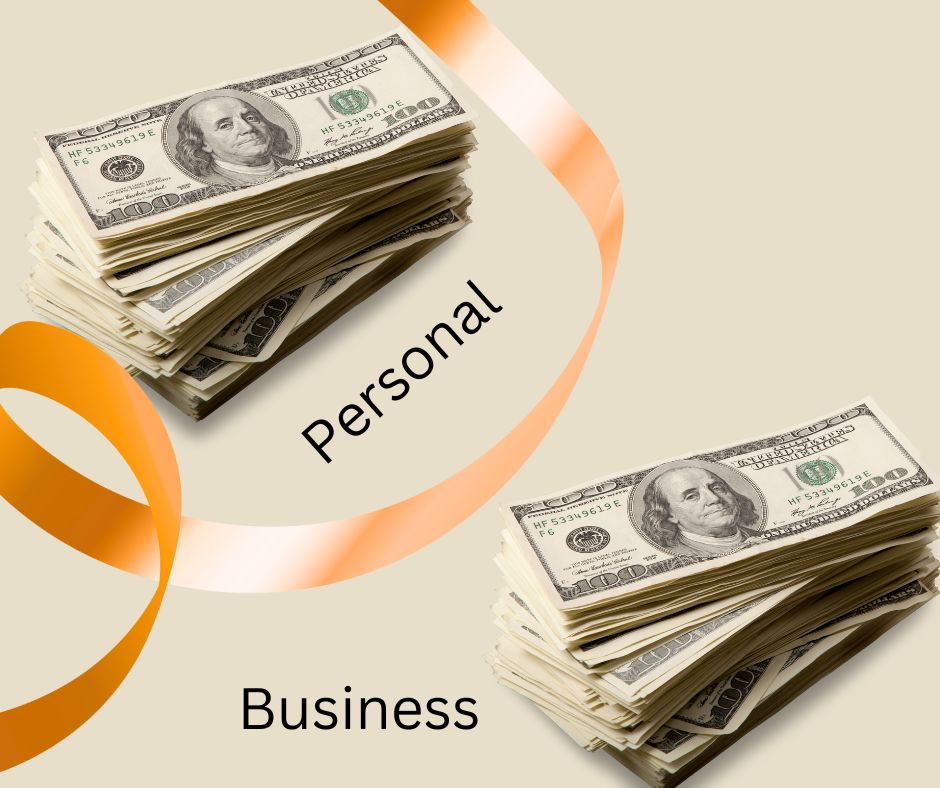
Why You Shouldn’t Mix Business and Personal Finances
As a small business owner, you might be tempted to use your personal bank account for business expenses or to make personal purchases with your business credit card. However, mixing your business and personal finances can cause significant problems that could cost you time, money, and even your limited liability status. In this blog post, we’ll explore a few of the reasons why it’s crucial to keep your business and personal finances separate.
Lost Expense Deductions
One of the biggest advantages of having a small business is the ability to deduct business-related expenses from your taxable income. However, if you’re using your personal bank account for business expenses, it can be challenging to prove which expenses were exclusively for business purposes. As a result, you could miss out on valuable tax deductions, costing you more money in taxes.

Commingling Funds Can Pierce the Corporate Veil
If you own a limited liability company (LLC) or corporation, you likely chose that business structure to protect your personal assets from business liabilities. However, if you’re using your personal bank account for business expenses or making personal purchases with your business credit card, you could be inadvertently blurring the line between your business and personal finances. In legal terms, this is known as “commingling funds,” and it can put your personal assets at risk by piercing the corporate veil.
If your business is ever sued or can’t pay its debts, a court could determine that your LLC or corporation is just an extension of your personal finances, and therefore, your personal assets are fair game for creditors.
Difficulty Tracking Business Performance
Another reason to keep your business and personal finances separate is that it makes tracking your business performance much more difficult. If your business and personal expenses are all mixed together, it’s hard to determine how much revenue your business is generating and whether it’s profitable. By keeping your finances separate, you’ll have a clearer picture of your business’s financial health, making it easier to make informed decisions and plan for the future.

Tips for Keeping Business and Personal Finances Separate
If you’ve been mixing your business and personal finances, now is the time to make a change. Here are a few tips to help you keep your finances separate:
- Open a business bank account and use it exclusively for business transactions.
- Apply for a business credit card and use it only for business expenses.
- Use accounting software to track your business income and expenses separately from your personal finances.
- Set up a separate business entity, such as an LLC or corporation, to further separate your business and personal finances.
Keeping your business and personal finances separate might seem like a hassle at first, but it’s essential to protect your assets and take advantage of tax benefits.
